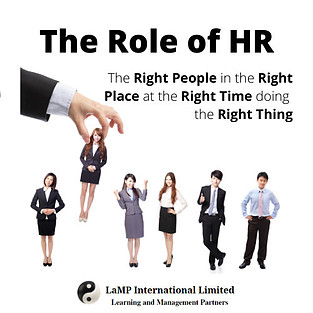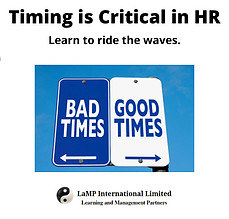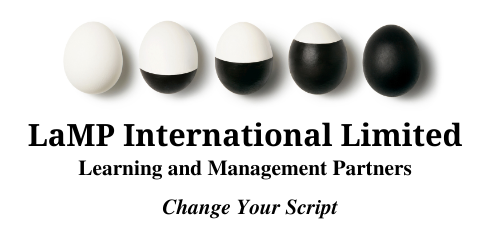As a professional working with behaviour and change, I am frequently asked: “What is human resource about?” The question is posed by persons who are either curious about the discipline and its role or those who are questioning their experience of the function. Wherever you are on the continuum, this article will help you to understand the core concepts of human resource and how it can be used to help you and your organisation. It is a dynamic and often misunderstood field but very important for an organisation’s success.
If done well, it can set your organisation apart from the rest and place it in the realm of admiration. If done poorly, it creates a revolving door at your entrance and exist as people will quickly conclude that they are not really an asset but more of a liability.
Understanding Human Resource
I have experienced human resource (HR) as both a client and a provider and as a practitioner and consultant. When you are able to view something from so many roles and angles you tend to develop a great appreciation for it.
The best way to appreciate service, for example, is to be a customer and the most ideal way to understand the challenges that customers bring is to be a service provider. In other words, role reverse.
HR is known to be challenging but it can also be very gratifying. As the name implies, it is all about being human and managing this critical organisational resource.
Over the years, the function has changed names many times.
- Personnel
- Human Resource
- Talent
- People Resources
- Human Capital
Call it what you will, the essence and intent of the function remain the same. Its primary purpose is to attend to the needs of the employees in the organisation. All the employees. That means the CEO, the Receptionist and everyone in between.
The broad spectrum of the function makes it rather challenging to manage at times. Employees’ needs are diverse and it is not possible to be all things to all people and have them satisfied all the time.
A Gatekeeper Function

If employees are considered assets, then HR is as important as finance. In the same way that finance manages and safeguards the monetary and physical assets of an organisation, HR must ensure that the right people are in the right places at the right time to achieve the objectives.
Understanding this very simple strategy will help you to appreciate how effective and efficient HR can make a meaningful difference.
After selecting the best people for the organisation, HR’s role changes to ensure that the necessary tools and resources are available for continued growth and development of both the individual and the organisation.
Appropriate interventions should be led by HR for both staff and managers to facilitate harmonious relationships and effective teamwork. Without staff and managers working closely together for the benefit of the organisation, dissatisfaction, low morale and inadequate performance will begin to emerge.
This will become evident in the behaviours of the employees and their commitment to the organisation and its vision.
To achieve this, it is important for HR to ensure that the training and development of the organisation’s managers allows them to competently address the issues that arise with staff members that fall within their sphere of responsibility.
HR should not be seen as the dumping ground for negative issues and unhealthy situations.
The Right People
This is where the work of HR begins and where its own performance measure is initiated. To be technical, it’s aptly titled, Recruitment and Selection. What it truly means is that you have a responsibility to go to market and bring the right people into the organisation.
But, what does that really mean?
Who is the right person for the organisation?
You will note that I said “for the organisation” and not “for the job“. This is the first major mistake that many HR practitioners make. They recruit for a job position and not thinking about the other components that would have a direct impact on the individual’s effectiveness in their role.
Unless the job position involves someone working alone, in a closed room and with no interaction with anyone else in the organisation, it is critical that your select individuals for an organisational role.
This is important for many reasons.
- They will be working with others.
- They will be expected to learn and share their knowledge.
- They should be encouraged to grow and not stagnate.
- Your management talent may emerge from them.
- If they grow, the organisation will grow.
- Their behaviours should help to build a supportive culture.
- They will have ideas and opinions.
Here is an excellent video from InternationalHub to help you understand what Human Recource Management entails.
The Right Place
Now that you have recruited and selected the right people, what do you do with them?
Positioning them in the right place in the organisation should be the next step. There are a few ways that this could be accomplished successfully.
During the interview and assessment stage, thought should be given to where the individual will be placed and with whom they will be working and engaging. Again, work is not done in isolation and effective positioning is required to achieve the best performance.
Placing a new member within a group will impact on the group dynamics and you should consider, having assessed it, the new individual’s behaviours and disposition.
- Will they bring a positive impact on their immediate work group and the wider organisation?
- What will their level of influence be?
- How will they communicate?
- Will they require long-term supervision and if so, who will be required to facilitate this?
- Is the environment conducive to learning and development?
- Are expectations aligned?
There is a reason why an organisation has a Probation Period – a time for mutual assessment. This affords the opportunity for both parties to consider if the individual is right for the role and if the organisation is conducive for t the individual to perform at his or her best.
There are too many instances where people just settle for a job because they feel they have no other option. This is where you will be spending most of your time. It is important, for everyone, that the placement is a good one.
The Right Time

This happens frequently in organisations, bad timing. I have experienced many people and organisations having bad outcomes simply because sufficient thought was not given to timing.
There are times within an organisation’s work schedule when dealing with people matters like recruitment and selection may not be effective or appropriate. I know that there is a trend of thought that people should be able to function within chaos but is your organisation always chaotic?
If it is then perhaps you should consider your own performance and functioning in the environment.
Let’s face it, the best time to ask your CEO to consider salary increases is not when the is consumed with addressing last year’s poor performance with his Board of Directors.
In the same way, recruiting during a time of upheaval or major change in your organisation may not be the most conducive for orienting new employees or making changes to your employee structure.
Whilst the most ideal timing is as planned, unexpected changes will arise and HR should be the leaders of the situations for all employees. Making yourself present on the line and supporting both your staff and managers through the changes is one of the best ways for HR to build its credibility and respect.
The Right Thing
I recall as a young employee learning the difference between efficiency and effectiveness. It involved the dismissal of one of my company’s staff members and its was a lesson that I have never forgotten.
The company’s Receptionist was excellent at some aspects of her role. She was a good typist, quick and mostly error free. She answered the phone with a distinguished voice. Her filing was without fault.
There was one major flaw however and one day it was observed by the company’s CEO.
As the was walking into the lobby, the observed a customer sitting anxiously, staring at the Receptionist. He walked up to her and inquired whether she was being attended to. She said she had been sitting there for some time waiting as the Receptionist told her to have a seat.
He walked over to the Receptionist and asked who the customer was waiting for. The Receptionist replied that she did not know because she had not asked. She was typing a letter and would attend to the customer when she was finished.
The CEO became furious. Ensured that the customer was immediately attend to and directed HR to remove the Receptionist from the role until they were satisfied that training had helped her understand how to be effective in her role.
Her timing to be efficient led her to be ineffective. Even of the letter was important, she did not take the time to determine what the customer’s issue was.
As it turned out, the customer was there to collect a cheque to take to the hospital to pay for services for her ailing husband.
Human Resource is Selfless
Managing your human resource requires that you be diverse in your thinking and approach. It also requires you to be selfless. It is a helping profession that requires you to prove for every employee in your organisation.
There is little room for bias and favoritism. You must always be seen to be fair and non-judgmental in your approach and dealings.
I do not subscribe to the belief that HR should be relegated to a room in an organisation, pushing paper. The days for that has long past.
HR exists on the line supporting managers and staff. It is therefore critical for you to understand your organisation, its people, the business that it performs and know who to assertively manage all the resources ensuring your organisation’s growth and sustainability.
Cassandra is the Founder, Managing Director and Lead Partner at LaMP International Limited.
She is an internationally trained, experienced and versatile Executive, Facilitator, Speaker, Coach and Online Entrepreneur. Her expertise in Organisational Behaviour, Change Management. Group Work, Communications, Talent Development and Strategic Human Resources Management allow her to bring a unique and engaging style to the table.
When not in the dynamic business arena you can find her travelling the world with her daughter, writing, hiking, enjoying extreme sports, capturing life and nature or getting her hands dirty in the soil.

I will recommend this article to ALL local (Trinidad and Tobago) HR professionals for them to understand their role and function. Too many times even the HR professionals selected are the wrong individual for the organization’s role.
Alicia, I REALLY appreciate your kind comments and your observations.
Your experience has been mine also.
Over the years, I have had many conversations and interventions with HR Professionals regarding understanding their role within the organisation.
Some get it and many do not.
We sit on a very fine line and balancing takes resilience and skill.
I look forward to welcoming you again.
Kind regards,
Cassandra